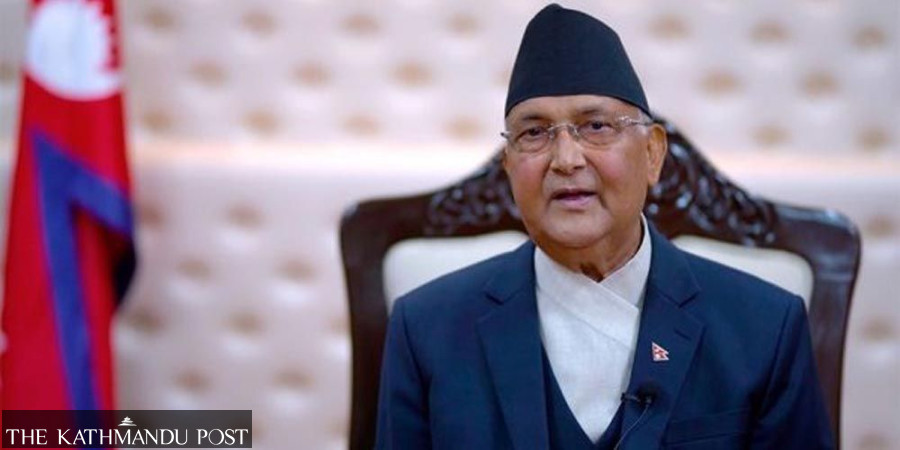Politics
UML chief’s political paper rules out communist unity as immediate need
The UML chief, however, stresses the need for continuing and further strengthening the ruling alliance.
Post Report
The CPN-UML has ruled out the necessity of unity among the communist parties or any other type of political polarisation in the country right now.
Presenting his political report at a meeting of the party’s National Representatives Council in Lalitpur on Saturday, UML Chairperson KP Sharma Oli said an alliance, not polarisation, among like-minded forces is the need of the hour.
In his document, the chief of the country’s largest communist force says that left unity or polarisation is impractical as well as unnecessary. “Cooperation among like-minded parties is what we need. But it is neither necessary nor beneficial to have polarisation of the communist or the socialist forces,” reads a point from the report.
Less than two months since the formation of the dominant communist alliance that is in power, the largest party of the coalition has rejected the possibility of left polarisation. On March 4, the CPN (Maoist Centre) formally broke its partnership with the Nepali Congress and the UML took the place held by the Nepali Congress. Three of the five parties in the ruling bloc carry the communist ideology.
While ruling out the possibility of left polarisation, Oli, however, stresses the need for continuing and further strengthening the ruling alliance. He reiterated that the new alliance was formed to address several problems facing the country and give people the hope for betterment. “There are suspicions over the stability of the present alliance on the account of past incidents and experiences. It would be clarified by action rather than words,” reads the document.
After the 2022 election, Maoist supremo Pushpa Kamal Dahal became the prime minister with the UML’s support following the refusal of the Nepali Congress to hand over the government leadership as agreed while forming the poll alliance. Two months later, Dahal ditched the UML by standing with the Congress in the presidential elections. The move gave rise to rivalry between the UML and the Maoist Centre. A section of the UML strongly believes that the Maoist Centre is not a reliable partner.
However, through his document, Oli has tried to justify the necessity of the present alliance and stressed the need for its continuation. Claiming that the Congress made every attempt to break the alliance by offering the prime minister’s position to Rastriya Swatantra Party and others, Oli said it was pursuing a vendetta after failing in its bid. He claims that positive results from the new ruling alliance are already visible.
The over 35-page report dwells on a wide range of issues from the economy, and political situation to the future course of the party.
Without naming any party, Oli says that the emergence of populist forces and the expansion of the rightist parties is a cause for concern. These forces, according to Oli’s analysis, benefitted from the public frustration caused by political malpractices, economic crisis and bad governance.
“These forces can only list out the problems but have no solution to them,” reads the report. “The force that lacks the right philosophical and ideological ground doesn’t have a clear economic and political strategy and is largely motivated by self-interest can never be an alternative force [to the existing parties].”
The Rastriya Swatantra Party emerged as the fourth-largest party from the last general elections winning 21 seats. The right-wing Rastriya Prajatantra Party also increased its strength. The RPP advocates reinstating Nepal as a Hindu kingdom and scrapping federalism.
Oli’s paper comes down heavily on the RPP’s ideology. It says that the monarchy rejected by the people for its incompetence, incapability and wrong actions can never be reinstated. “Autocratic and feudal monarchy can never be an alternative to democratic republicanism.”
Oli, who is known for his tough stance against identity-based politics, has also criticised the forces that advocate identity or regionalism. The group that advocates or represents a certain region, language, culture or caste can never be a mainstream force, as per Oli’s paper.




 17.12°C Kathmandu
17.12°C Kathmandu














